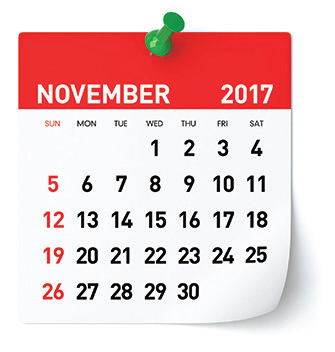Get to Know Your Diabetes ABCs

Posted on September 13, 2017
 November is National Diabetes Awareness Month and we would like to share with you some important information about diabetes.
November is National Diabetes Awareness Month and we would like to share with you some important information about diabetes.
What is diabetes? Diabetes occurs when the body does not produce or properly use insulin. Insulin is a hormone that aids in the conversion of sugar, starches and other foods into energy that is needed for daily life. People with type 1 diabetes, previously called juvenile-onset diabetes, have a total lack of insulin, which requires insulin injections or a pump. Those with type 2 diabetes, previously called adult-onset diabetes, have insulin, but cannot use it effectively and are in a state of “insulin resistance” requiring medications and/or insulin injections.
What is pre-diabetes?
Pre-diabetes – when your blood glucose levels are higher than normal, but not yet high enough to be diagnosed with diabetes – is a precursor to developing type 2 diabetes and also puts you at greater risk for cardiovascular disease.
Many people will have no symptoms for several years, until it’s too late and symptoms start to occur, signaling a progression to type 2 diabetes. This is why it’s important to have your well-care visit with your primary care provider (PCP) each year.
What are the risk factors for diabetes?
As you age, your risk for developing diabetes increases. The following factors also increase your risk:
- Being overweight or obese
- Having a family history of diabetes
- Leading a sedentary lifestyle
- Having high blood pressure
- Having high cholesterol
You can delay or prevent getting diabetes by following a healthy diet, becoming more active and sitting less, and losing weight. However, if you have any of these risk factors, talk to your PCP. A blood test can be done that measures your glucose levels, which can tell if you have diabetes or pre-diabetes.
Diabetes ABCs
If you have been diagnosed with diabetes, the American Diabetes Association suggests the most important way to stay healthy is to control your “ABCs.”
A is for Hemoglobin A1c. This blood test can tell your average blood glucose (sugar) level over the past three months. An A1c target of 7 percent or less is common but your target may be different based on your treatment plan with your physician. Your physician will likely give you this test at least twice a year.
B is for Blood Pressure. High blood pressure makes your heart work too hard. If left untreated, it can cause a heart attack, stroke or kidney disease. A good blood pressure is below 120/80.
C is for Cholesterol. Bad cholesterol (LDL) can build up and clog your blood vessels. It can also cause a heart attack or stroke. Your LDL goal is below 100. Good cholesterol (HDL) helps to remove bad cholesterol from the blood vessels. The HDL goal for men is above 40. The HDL goal for women is above 50.
Managing diabetes
Medication and lifestyle changes are the most effective ways to manage your ABCs. The following lifestyle changes can help you get started today:
- Make healthy food choices – Eat lots of fruits, vegetables, whole grains and low-fat dairy products. Limit the amount of meat and fried or fatty foods that you eat.
- Be active – Walk, garden or do something active for 30 minutes or more on most days of the week.
- Stop smoking – Smoking increases the chance that you will have a heart attack or stroke, or develop cancer.
- Lose weight – Being overweight increases the risk of many health problems.
- Avoid alcohol – Alcohol can increase blood sugar and blood pressure.
Be sure to talk to your PCP about how to control your blood sugar, blood pressure and cholesterol. If left untreated or not managed properly, people with diabetes put themselves in harm’s way for serious complications, such as heart disease, stroke, blindness, kidney damage and limb amputations.
If you have concerns or questions about your risk for developing diabetes, call your PCP today.
Source: https://www.baystatehealth.org/news/2016/11/diabetes-month
Comments are currently closed.








